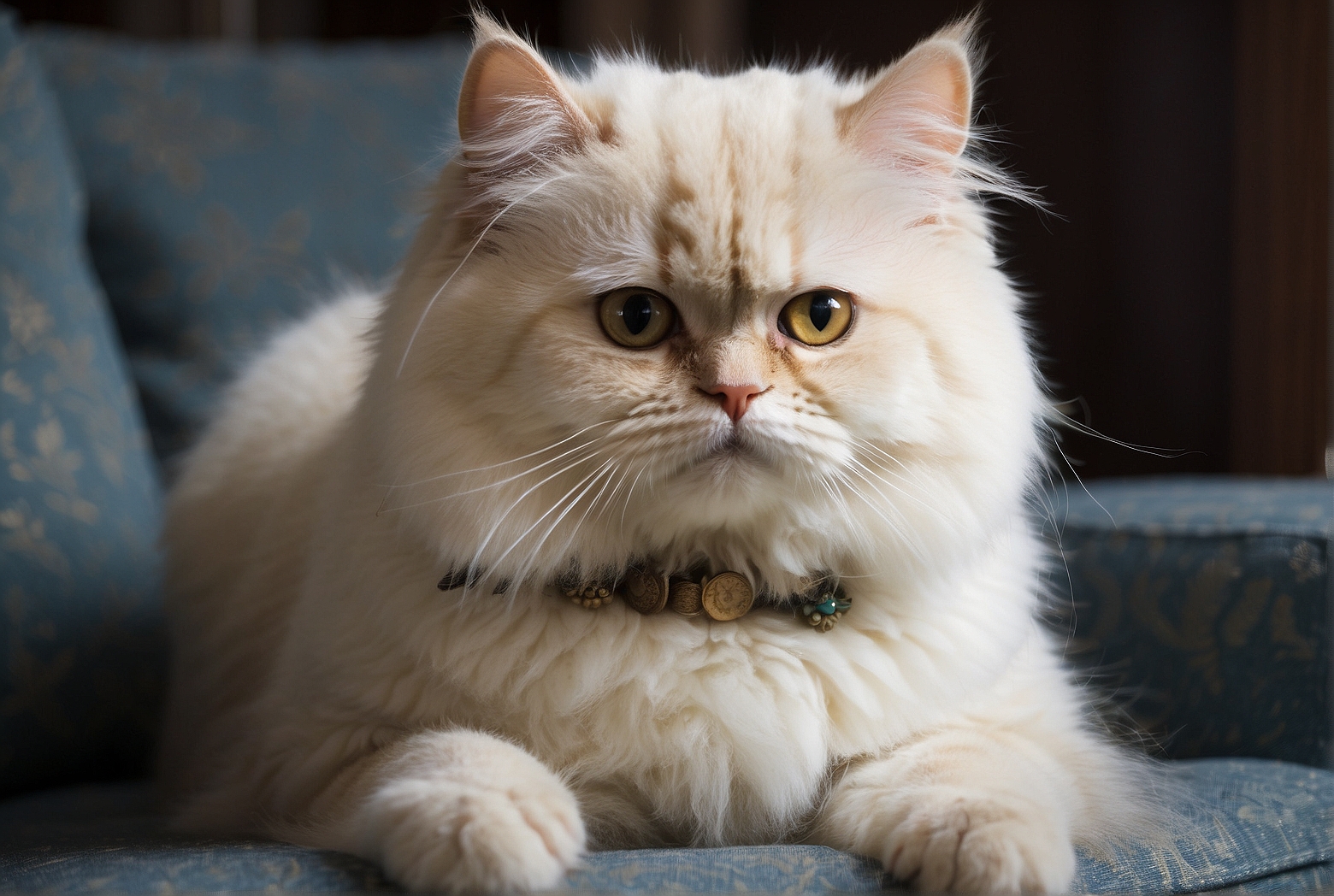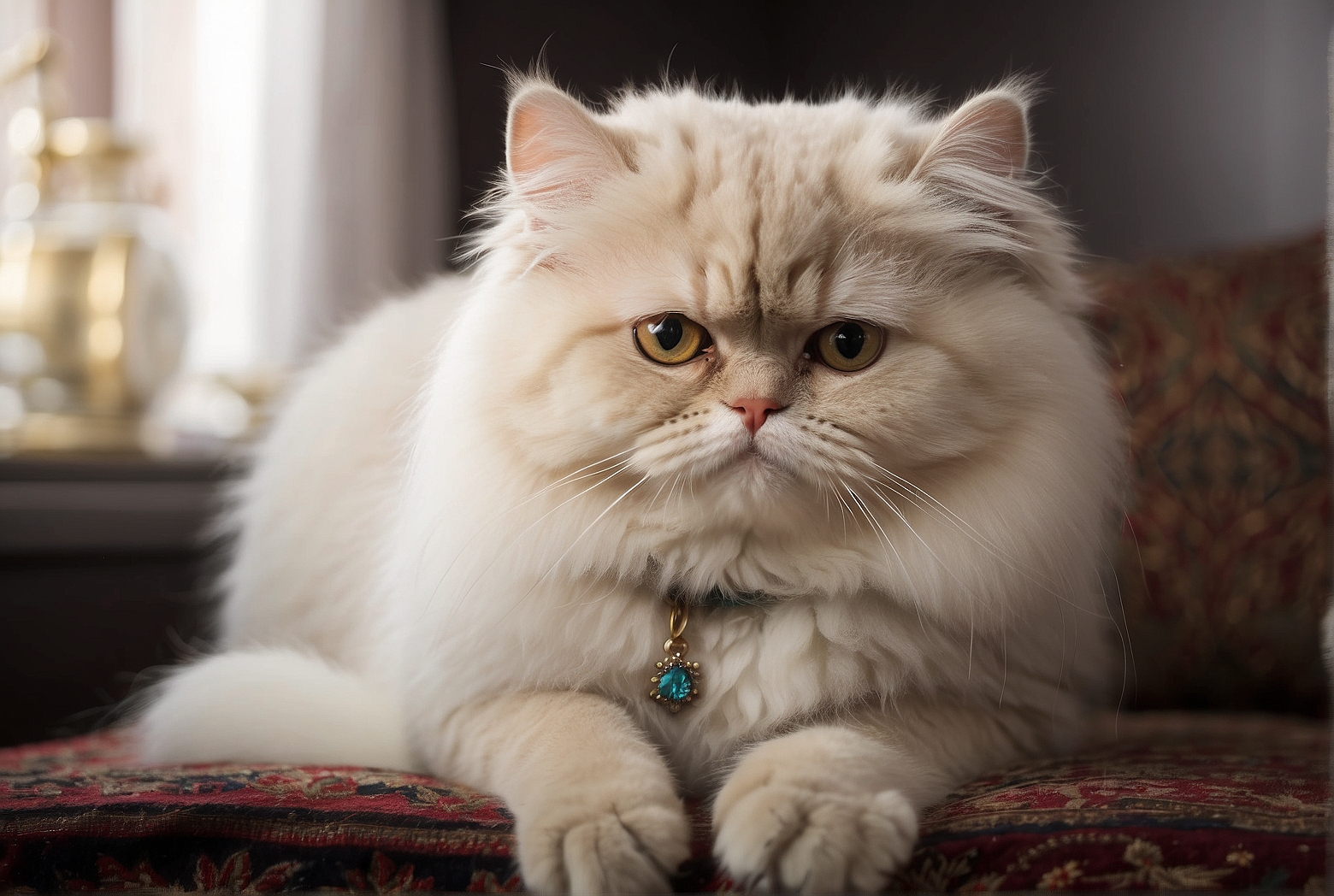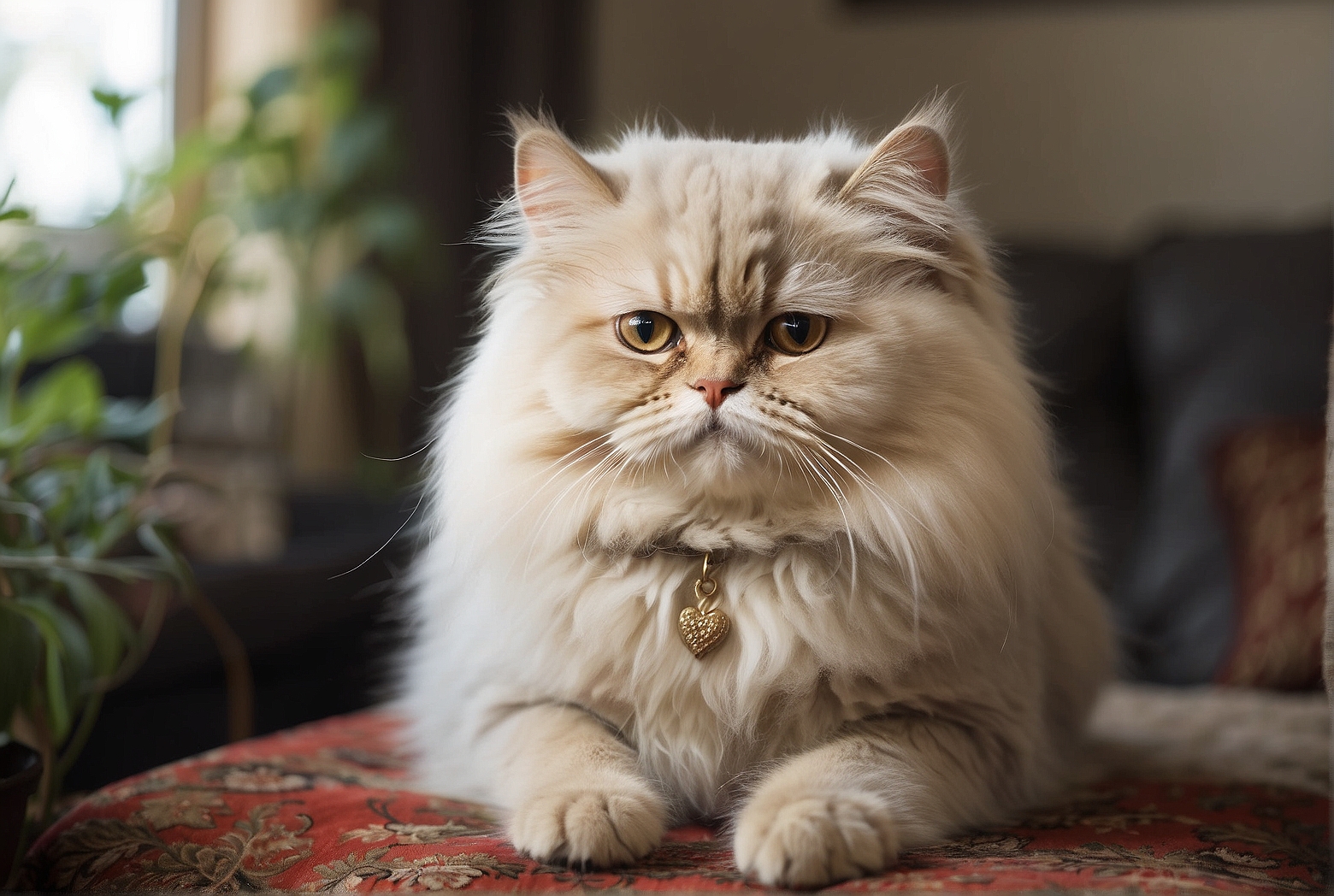Have you ever wondered why your Persian cat can sometimes be quite annoying? From their playful pouncing to their incessant meowing at 3 am, it can be challenging to understand why your beloved feline friend’s behavior may sometimes test your patience. In this article, we will explore some possible reasons for these seemingly annoying habits and provide you with tips to better understand and manage your Persian’s behavior. So, if you’re ready to decode the mystery behind your furry companion’s annoying antics, let’s dive right in!
Grooming Needs
High maintenance fur
One of the key aspects of owning a Persian cat is understanding their grooming needs. Persians have long, luxurious fur that requires regular maintenance to keep it in optimal condition. Their fur is prone to matting and tangling, so it’s important to brush them daily to prevent these issues. Additionally, Persian cats can be more prone to developing hairballs due to their grooming habits, so regular brushing helps to minimize the risk of hairball formation.
Regular grooming requirements
In addition to daily brushing, Persian cats also need regular grooming sessions to keep their fur looking its best. This includes bathing every few weeks to remove any dirt or oils that may have accumulated in their coat. It’s important to use cat-specific shampoo and to be gentle during the bathing process to avoid causing any stress or discomfort to your feline friend. Additionally, regular grooming sessions also involve trimming their nails, cleaning their ears, and brushing their teeth.
Behavioral Traits
Attention-seeking behavior
Persian cats are known for their attention-seeking behavior. They love being the center of attention and will go to great lengths to get it. Whether it’s rubbing against your legs, meowing persistently, or simply following you around the house, Persians crave human interaction and love. It’s important to provide them with ample affection and attention to keep them happy and content.
Playful and active nature
Despite their reputation for being calm and docile, Persians actually have a playful and active nature. They enjoy interactive play sessions and engaging with toys that stimulate their hunting instincts. Regular playtime not only provides them with a physical outlet for their energy but also helps to prevent boredom and destructive behavior.
Demanding for attention
Persians can be quite demanding when it comes to seeking attention. They may paw at you, meow loudly, or even jump into your lap to get your undivided focus. While this behavior can be endearing, it’s important to set boundaries and ensure that they understand appropriate ways to seek attention. This can be achieved by providing them with scheduled playtimes, engaging in interactive toys, and showering them with attention when they are calm and well-behaved.

Vocalization
Loud and persistent meowing
Persian cats are known for their distinct and often loud meows. They use vocalization as a means of communication, and it’s not uncommon for them to vocalize their needs, desires, or when they simply want your attention. Their meows can be quite persistent at times, especially when they feel ignored. It’s important to listen and respond to their meows appropriately, as it is their way of communicating with you.
Constant need for communication
Along with their loud meowing, Persian cats have a constant need for communication. They may chirp, trill, or purr to express their happiness and contentment. It’s important to engage in conversations with your Persian cat, as it fosters a strong bond between you and helps fulfill their needs for communication and social interaction.
Separation Anxiety
Difficulty being left alone
Persian cats are known to develop separation anxiety if left alone for extended periods. They form strong bonds with their owners and thrive on companionship, so being left alone can be distressing for them. It’s important to gradually acclimate your Persian to being alone by providing them with stimulating toys, comfortable resting places, and perhaps even considering adopting a companion pet if feasible.
Excessive crying or destructive behavior
When faced with separation anxiety, Persian cats may exhibit excessive crying or destructive behavior as a means of expressing their distress. They may scratch furniture, chew on objects, or even urinate outside of the litter box. If you suspect your Persian is experiencing separation anxiety, it’s crucial to address the issue with patience and understanding. Consulting with a veterinarian or animal behaviorist can provide valuable guidance on how to alleviate their anxiety and prevent destructive behaviors.
Socialization Needs
Preference for company
Persian cats have a strong preference for company and thrive in a social environment. They enjoy being around their human family members and interacting with them on a regular basis. It’s important to provide them with ample opportunities for socialization, including regular play sessions, cuddling, and interactive toys.
May become clingy or needy
Due to their social nature, Persian cats may become clingy or needy if they feel deprived of attention or companionship. They may follow you around the house, constantly seek physical contact, or meow excessively to gain your attention. While it’s important to fulfill their emotional needs, it’s also crucial to establish boundaries and encourage independent behavior to prevent excessive clinginess.

Health Issues
Potential health problems in Persian cats
Like any breed of cat, Persian cats are prone to certain health issues. These can include respiratory problems, eye conditions, dental issues, and polycystic kidney disease. It’s essential to be proactive in monitoring their health, scheduling regular check-ups with a veterinarian, and providing them with a nutritious diet to minimize the risk of developing these potential health problems.
Increased vulnerability to certain diseases
Persian cats are known to have an increased vulnerability to certain diseases compared to other breeds. These can include conditions such as brachycephalic airway syndrome, which affects their breathing, and upper respiratory infections. It’s crucial to be aware of these potential health risks and provide a safe and clean living environment for your Persian cat to minimize the chances of them developing these illnesses.
Allergies and Shedding
High allergenic potential
If you or a family member have allergies, owning a Persian cat may present some challenges. Persians are known to have high allergenic potential, as their long fur can trap and retain allergens such as dander. Regular grooming, vacuuming, and maintaining good indoor air quality are important to mitigate the impact of allergies.
Excessive shedding can cause irritation
Persian cats have a thick, double coat that requires regular brushing to prevent matting and excessive shedding. While shedding is a natural process for cats, excessive shedding can lead to irritation and discomfort for both your cat and you. Regular grooming sessions help to remove loose hair, reduce shedding, and keep your Persian’s coat looking healthy and shiny.
Litter Box Problems
Sensitive to cleanliness
Persian cats are known to be sensitive to cleanliness, particularly when it comes to their litter box. They prefer a clean and well-maintained litter box and may refuse to use it if it is dirty or has an unpleasant odor. Regular cleaning and providing multiple litter boxes can help ensure your Persian always has a clean and comfortable place to relieve themselves.
Possible litter box aversions
If your Persian cat consistently avoids using the litter box despite it being clean, they may have developed a litter box aversion. This can be caused by various factors, such as discomfort, fear, or a negative previous experience. It’s important to address this issue promptly by assessing the cleanliness, location, and type of litter box, as well as consulting with a veterinarian to rule out any potential medical issues.
Increased Dander
Potential for more dander production
Due to their long fur, Persian cats have the potential for increased dander production. Dander consists of dead skin cells, and it can trigger allergies or irritate sensitive individuals. Regular grooming sessions, including brushing, help to remove loose hair and minimize the amount of dander being spread around your living space.
Dander may cause allergies or irritation
If you or someone in your household has allergies or sensitive skin, it’s important to be aware that the dander produced by Persian cats can potentially cause allergies or irritation. Maintaining good indoor air quality, regular grooming, and frequent vacuuming can help reduce the amount of dander in your home and minimize any allergic reactions or skin irritations.
Living Space Requirements
Need for a safe and comfortable environment
Persian cats require a safe and comfortable living environment to thrive. It’s important to provide them with a secure indoor space that is free from potential hazards, such as open windows or toxic plants. Creating a cozy and comfortable area with soft bedding, perches, and hiding spots will ensure that your Persian feels safe and secure in their living space.
Preference for indoor living
Persians are generally best suited for indoor living due to their long fur and docile nature. They are more susceptible to extreme temperatures and their luxurious coat can become easily soiled or matted outdoors. Providing them with a stimulating indoor environment, with plenty of toys and interaction, will help keep them entertained and content while ensuring their safety and well-being.
In conclusion, owning a Persian cat requires a commitment to their unique grooming needs, providing them with ample attention and socialization, and being aware of their potential health issues and sensitivities. By understanding and meeting these requirements, you can ensure that your Persian remains happy, healthy, and a delightful addition to your family. Embrace their playful nature, relish their need for attention, and enjoy the deep bond that these captivating cats can bring into your life.
